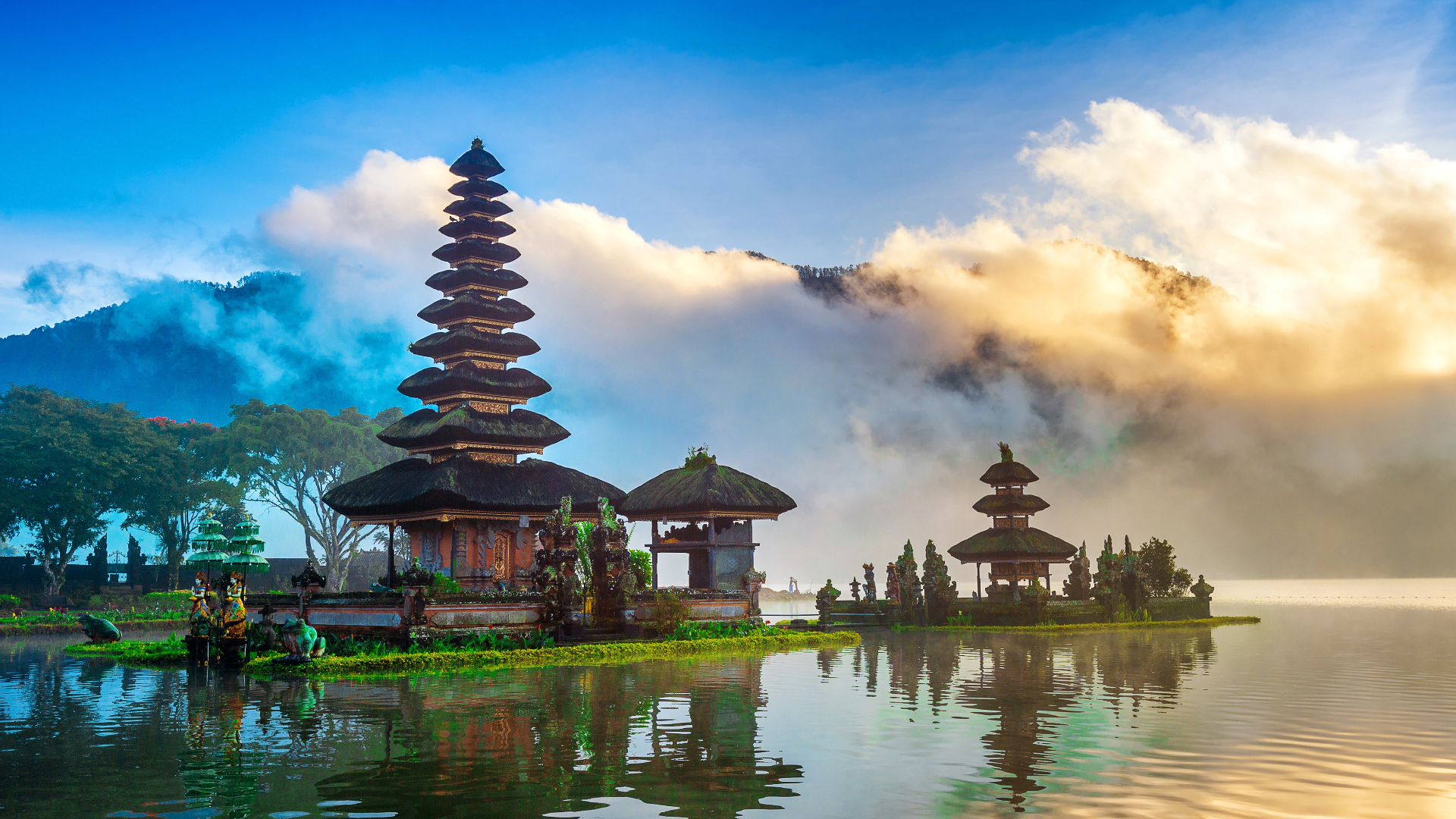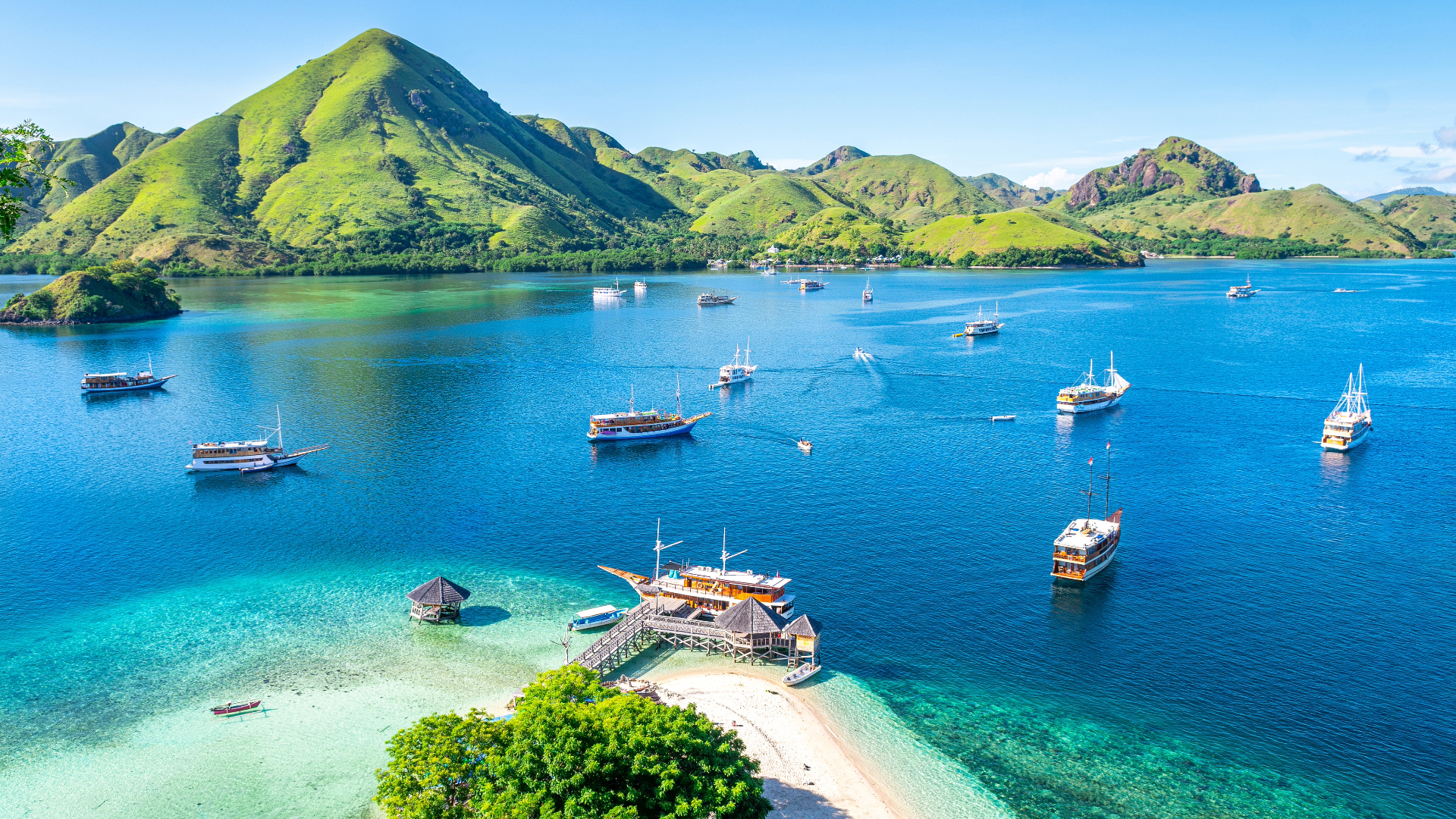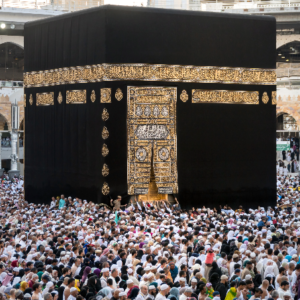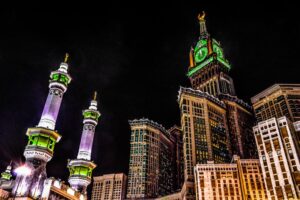Indonesia
Indonesia is a beautiful country located in Southeast Asia and is a popular halal destination for Muslim travellers. It is the world’s largest Muslim-majority country and offers an array of experiences for those seeking a Muslim-friendly holiday.
Indonesia is known for its stunning beaches, lush greenery, and diverse cultural heritage. The country is also home to a variety of halal-friendly accommodations, restaurants, and attractions that cater to Muslim travellers’ needs.Indonesia is also a great place to explore Islamic history and culture. The country is home to several prominent Islamic landmarks, including the Istiqlal Mosque, the largest mosque in Southeast Asia.

For Muslim travellers, Indonesia is a halal-friendly destination, with many restaurants and eateries offering halal food options. Visitors can enjoy local delicacies such as Nasi Goreng, Satay, and Rendang, which are all prepared according to Islamic dietary laws.
Indonesia is a perfect destination for Muslim travellers seeking a halal-friendly and Islamic holiday. With its natural beauty, cultural richness, and halal-friendly facilities, Indonesia promises a unique and unforgettable experience for those seeking a Muslim-friendly destination.
Must See
Indonesia is a beautiful country that offers a wealth of experiences for Muslim travellers. From exploring Islamic history and culture to indulging in halal-friendly cuisine, Indonesia promises a unique and unforgettable holiday. Here are five things that every Muslim traveler must see or do when visiting Indonesia:
1. Visit Istiqlal Mosque: The Istiqlal Mosque is the largest mosque in Southeast Asia and a significant landmark for Muslims in Indonesia. It can accommodate up to 200,000 worshipers and is a symbol of religious tolerance in the country. Visitors can explore the mosque’s intricate architecture and learn about its history and significance in Islamic culture.
2. Visit Jakarta’s Old Town: Jakarta’s Old Town, also known as Kota Tua, is a historic district that features colonial-era architecture and landmarks. Muslim travellers can visit the area’s museums, cafes, and shops while exploring the city’s history and cultural heritage.
3. Experience Bali’s natural beauty: Bali is a popular tourist destination known for its beautiful beaches, lush greenery, and vibrant culture. Muslim travelers can enjoy activities such as snorkelling, hiking, and exploring the island’s famous temples. They can also experience Bali’s unique cultural traditions, including its music, dance, and art.
4. Go on a Wali Songo Tour: The Wali Songo of Indonesia were nine Muslim saints who spread Islam throughout Java in the 15th and 16th centuries. Visiting their tombs and shrines is a popular spiritual experience for Muslim travellers, known as “ziarah” or pilgrimage. It’s a great way to connect with the rich Islamic history and culture of Indonesia and immerse oneself in a spiritual retreat. The Wali Songo sites offer a peaceful and serene atmosphere for reflection and prayer, making it an excellent destination for Muslim travellers seeking a spiritual experience or retreat.
5. Visit Indonesia’s UNESCO World Heritage Sites: Indonesia has a total of ten UNESCO World Heritage Sites, each with its unique cultural and natural significance. Some of them include the Borobudur Temple in Central Java, the Prambanan Temple in Yogyakarta, Tana Toraja and Komodo National Park.

Cuisine
Indonesia is a halal-friendly destination with a vibrant culinary scene that caters to Muslim travellers’ needs. Halal food is widely available throughout the country, with many restaurants and eateries offering halal food options.
One of the most popular dishes in Indonesia is Nasi Goreng, a fried rice dish that is cooked with various ingredients such as chicken, shrimp, and vegetables. Another popular dish is Satay, grilled meat skewers that are served with a peanut sauce. Rendang, a spicy meat dish, is also a must-try for visitors seeking a taste of authentic Indonesian cuisine.
Halal restaurants are widely available in Indonesia, especially in major cities like Jakarta and Bali. Many restaurants display halal certificates, making it easy for Muslim travellers to find authentic halal food. In addition, there are many street vendors and night markets that offer halal food options, making it easy to find affordable and delicious meals.
Muslim travellers can also enjoy traditional Indonesian dishes like Gado-Gado, a salad made with vegetables and peanut sauce, and Soto, a soup made with chicken or beef and spices. For those seeking international cuisine, there are also many halal-friendly international restaurants that offer a range of dishes from around the world.
Indonesia is an excellent destination for Muslim travellers seeking halal food options. With its diverse culinary scene and halal-friendly facilities, visitors can enjoy a range of delicious meals while experiencing the country’s natural beauty and cultural richness.

Islam
Islam is the most widely practiced religion in Indonesia, with over 85% of the country’s population identifying as Muslim. Indonesia is the country with the single largest population of Muslims, hosting 13% of the world’s Muslims! The country’s Islamic history dates back to the 13th century when Muslim traders first arrived in the archipelago. Since then, Islam has played a significant role in shaping the country’s culture and identity.
In addition to the Istiqlal Mosque, which is the largest mosque in Southeast Asia, there are several other prominent mosques in the country. The Masjid Agung Demak is a historic mosque located in the city of Demak and is believed to be the oldest mosque in Java. The Masjid Agung Semarang is another notable mosque located in the city of Semarang and is known for its unique blend of Javanese and Islamic architecture.
Other notable mosques in Indonesia include the Masjid Raya Baiturrahman in Aceh, the Masjid Al-Akbar in Surabaya, and the Masjid Nabawi Indonesia in Depok. Each of these mosques has its unique history and significance in Islamic culture and is worth visiting for those interested in Islamic history and architecture.
Indonesia’s Islamic heritage is an essential part of the country’s cultural richness and identity. With its diverse Muslim population and numerous mosques and landmarks, Indonesia promises a unique and unforgettable experience for those seeking a Muslim-friendly destination.
Best Time To Go
The best time to visit Indonesia depends on the region you plan to visit and what activities you want to do. Indonesia has a tropical climate, and generally, there are two seasons: the wet season and the dry season. The dry season is between May and September, while the wet season runs from October to April.
If you plan to visit Bali or other parts of Indonesia between May and September, you can expect dry and sunny weather with low humidity. This time of year is ideal for outdoor activities such as hiking, surfing, and exploring the beaches. During this season, Bali also hosts a range of cultural events and festivals such as the Bali Arts Festival, which takes place in June and July.
The wet season in Indonesia, from October to April, brings more rain and higher humidity. However, the rainfall is generally in the form of short afternoon showers, so it doesn’t usually disrupt travel plans too much. The wet season is a good time to visit Sumatra or Kalimantan, where the forests are lush and green, and the wildlife is more active. The wet season is also the time when some of Indonesia’s unique cultural events take place, such as the Toraja Funeral Ceremony in Sulawesi.
Indonesia has several festivals and events throughout the year, celebrating everything from music and dance to religion and cultural traditions. One of the most popular festivals is the Jakarta International Java Jazz Festival, held in Jakarta every March. Other notable events include Bali’s Nyepi Day, which is the Balinese New Year and is celebrated with a day of silence and meditation, and the Kasada Festival, which is celebrated by the Tenggerese people in East Java with offerings to the gods on Mount Bromo. It’s always a good idea to check the dates and details of these events before planning your trip to Indonesia.




